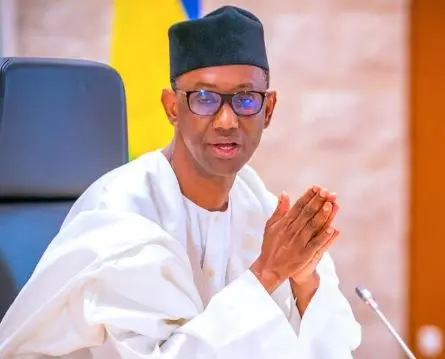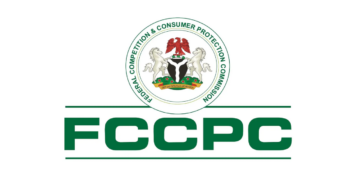Stakeholders, including economic experts have faulted the imposition of 0.05 compulsory financial deductions on every electronic financial transaction in Nigeria. The experts say it would have maximum and extended impact on financial transactions, financial inclusion drive of the government, and by extension, a contraction of the national economy.
In a chart with LEADERSHIP, Professor of capital market at Nasarawa State University Uche Uwaleke said implementation of the cybersecurity levy is ill-timed, coming at a time when the Central Bank of Nigeria (CBN) is concerned about the high rate of financial exclusion and the increasing rate of currency circulating outside the banks.
“It carries the downside risk of discouraging financial intermediation as well as complicating the transmission of monetary policy with more people shunning the banks due to high charges. The end result is that it makes a difficult effort by the CBN to tame inflation,” he stated.
On Monday, the CBN directed commercial banks to effect a 0.5 percent charge on all electronic transactions by bank customers for cybersecurity levy on behalf of the federal government.
Professor Uwaleke said the central bank should withdraw the circular especially against the backdrop of assurances by the government that its plan to increase revenue would not include introducing new taxes or increasing tax rates.
Also, economic policy analyst and former commissioner in Benue State, Dr Justine Amase said the funding model appears to be an easy way out for a government that is struggling with tight fiscal space.
Aside that, the former commissioner of information said the policy could underline the varied potential negative economic impacts of the policy including the fact that it will contract financial transactions, economic activities, and by extension, economic growth; compound ease of doing business and discourage local and foreign investment inflows; undermine transparent transactions reporting by banks; have inflationary impact as added costs will be marked up in final products and services prices, and weaken CBN cashless policy and, by extension, financial inclusion and effective monetary policy transmission.
Dr Amase said a more well-thought-out institutional funding and fund management arrangement should have been adopted. “Companies are already burdened by 2% deduction from education levy, 0.005% for police fund etc. A more creative funding strategy that does not impose direct deduction from business transactions (such as prioritising budgetary and donor funding)would have been better,” he stated in a response to questions from this reporter, adding that “the fund management model may not be efficient and effective, as the office of the NSA is a political office subject to bureaucracy and leakages from funds misappropriation.
Using a fund management model such as a Trust (as in the police fund) or at worst, a dedicated agency (as in TETFund) may deliver greater value for money.”
Like Dr Amase, Professor Uwaleke said the government should suspend the policy while getting set to implement the recommendations of the Presidential Committee on Fiscal Policy and Tax Reforms whose mandate includes streamlining multiple taxes and levies currently inhibiting the growth of businesses in Nigeria.
The economic experts said the government should revisit the Cybercrimes (Prohibition, Prevention, etc.) (Amendment) Act 2024 and redesign a more innovative funding model as well as a more effective and accountable fund management vehicle for successfully implementing funding of cybercrime countermeasures in Nigeria.
The CEO, Centre for the Promotion of Private Enterprise (CPPE) Dr. Muda Yusuf also disagreed with the CBN 0.5 per cent levy on all electronic transactions.
Yusuf stated that the recent announcement by the Central Bank imposing a 0.5 per cent levy on all electronic transactions value in the economy is a major cause for concern.
According to him, businesses and the generality of citizens are yet to recover from the shocks of current reforms. Inflationary pressures have not abated, high cost of living is still a major worry, operating and production costs for businesses remain elevated, amidst weak consumer purchasing power. This is not a good time to impose an additional levy both on businesses and citizens. The magnitude of the levy is even of a bigger concern.
He added that “the expectations of citizens and corporate organisations are that taxes and levies are being rationalised and streamlined for a better business environment. The Presidential Committee on Fiscal and Tax Reforms had said this repeatedly. The announcement on the cybercrime levy contradicts earlier assurances by the Presidential Committee.
“Meanwhile, businesses are already saddled with the following federal taxes: Company Tax, Tertiary Education Tax, Stamp Duties, NITDA levy, Value Added Tax,NASENI Levy, Police Trust Fund Levy, among others.”
He also noted that there are also a plethora of taxes and levies imposed by states and local governments, saying that “most MDAs, especially those performing regulatory roles, have practically become revenue generating agencies. Many have revenue targets.
“All of these impose enormous pressures on investors in the economy. This diminishes their capacity to drive economic growth and create jobs and also fueling inflation.
“The cybercrime levy is even more troubling because it is a tax on electronic transactions, not on profit. It has no regard to whether the business is healthy or not. Even loss-making companies are liable. The poorer segments of society are not exempted either. This raises serious issues of equity.”
Yusuf pointed out that “total budget appropriation for defence and security in the 2024 budget was N3.2 trillion; and infrastructure appropriation was N1.32 trillion. These are just appropriations. Actual releases are often much less.
“There is also the risk the legislation poses to the cashless policy of the central bank over which significant progress has been made. We are likely to see an increased migration to the use of cash as against electronic platforms.”
CPPE pleaded with the relevant authorities to put the implementation of the legislation on hold while a thorough review is done, proposing a robust stakeholder engagement to review the legislation.
Also commenting, the executive director of the Civil Society Legislative Advocacy Centre, (CISLAC), Auwal Musa Rafsanjani, described the levy as an anti-poor policy that would bring more hardship on the already impoverished Nigerians.
“You cannot continue to punish the citizens. The government is leaving big corporations to continue to do what they are doing and continue to tax the poor. Nigerians have to be alive to be productive and contribute to the economy.
“If the government continues to emasculate Nigerians with these harsh economic policies, Nigerians cannot be productive to contribute to the economy. The anti-poor policies of this administration need to be looked into. There is too much emasculation that is targeted at poor Nigerians.
“Banks have continued to deduct all sorts of fees from every transaction. This is not fair and it is not how to generate revenue. The money that the government is wasting and spending recklessly is where they need to stop if they want to fund and revive the economy, not taxing the money of poor people in the bank.
“We are not in support of this policy because it is not poor people friendly, meanwhile those in government are not feeling anything because they don’t even pay any tax and everything is provided for them, this is not a good way to do things.”
On his part, head of Financial Institutions at Agusto & Co, Ayokunle Olubunmi, noted that the new levy will have an adverse effect on financial inclusion in the country adding that “the National Cybersecurity Levy is meant to strengthen Nigeria’s cyber space and enhance the Cybersecurity.
“However, the mandated levy, 0.5 per cent of transaction value, will increase the cost of electronic transfer and charges on bank accounts. The levy could also threaten the cashless policy of the CBN as it makes electronic transactions more expensive relative to cash transactions.”
Nigerians have also taken to social media to protest the latest levy on electronic transactions, questioning why they have to directly fund the activities of a government agency. An X (formerly twitter) user, olayemiX queried “can you help me understand why citizens are required to directly fund the activities of a government agency. Also, could you please clarify how the agency utilises the fund collected from the citizens?”
A social media influencer @ourfavonlinedoc tweeted “what the new levy means is if you do N1 million transfer, the bank will charge you an extra N5,000 to be sent to the NSA office for cybersecurity. And if you send N2 million, the bank will charge you extra N10,000. It’s crazy at this point. This is mass financial strangulation.”
Some traders who spoke with Leadership said they will have to switch to cash-based transactions as they are already burdened by the various charges levied on transactions by the banks and government.
“To imagine that I have to pay SMS charge, transaction charge, VAT, stamp duty and now cybersecurity levy. What is my profit margin that I have to pay all these as charges? This government and the CBN are just looking for ways to kill businesses and the economy. How can we survive under this kind of environment.” Chukwu Nonso, a trader, told LEADERSHIP.





